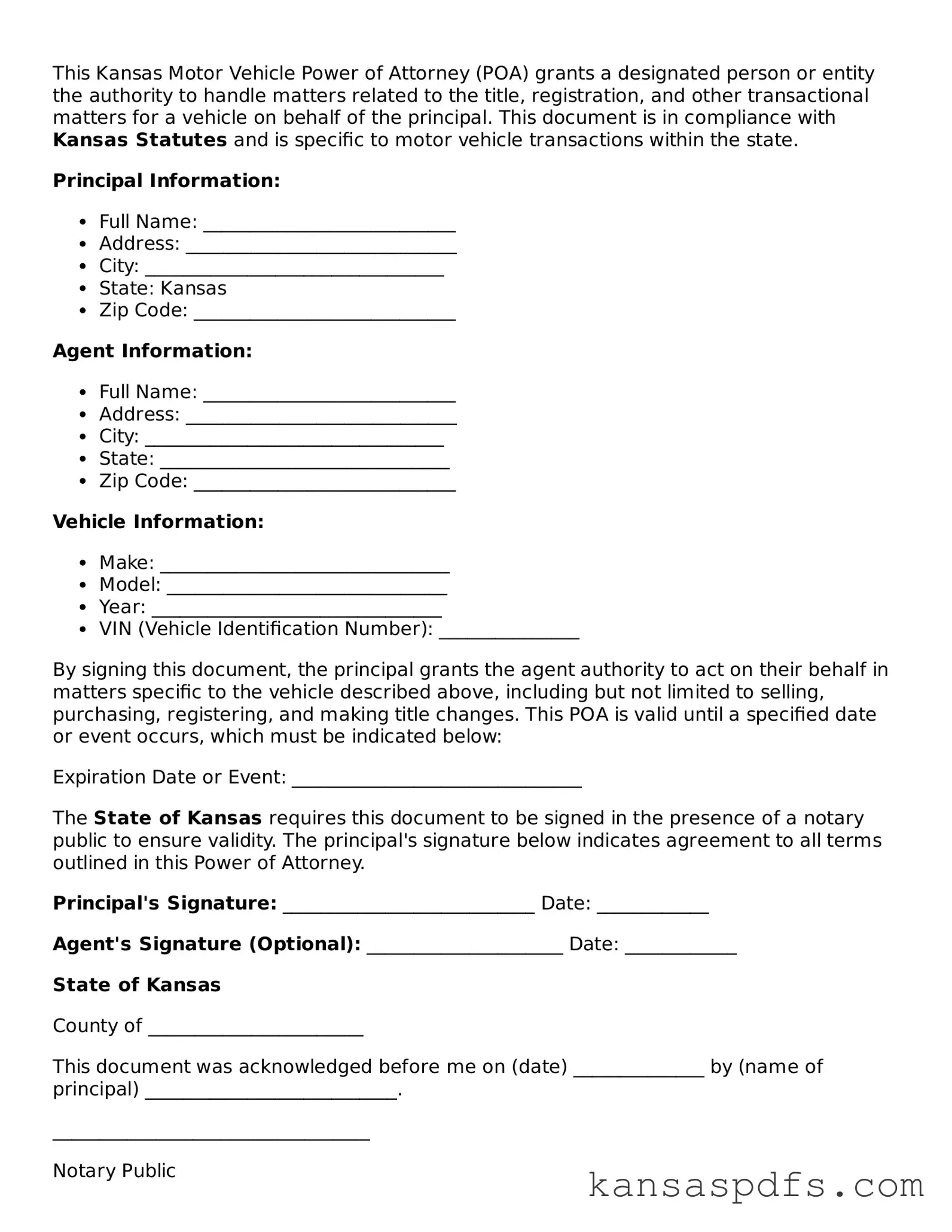What is the Kansas Motor Vehicle Power of Attorney form?
The Kansas Motor Vehicle Power of Attorney form is a legal document that allows someone to grant another person the authority to make decisions and take actions regarding their motor vehicle. This includes buying, selling, and handling the registration and titling of the vehicle on the owner’s behalf.
Who can use the Kansas Motor Vehicle Power of Attorney?
Any vehicle owner in Kansas wishing to delegate authority over their vehicle to another person can use this form. It's particularly useful for those who are unable to manage their vehicle transactions due to absence, illness, or other commitments.
How do I appoint someone as my Power of Attorney?
To appoint someone as your Power of Attorney for your motor vehicle, you must fill out the Kansas Motor Vehicle Power of Attorney form with detailed information about the vehicle and the person you are appointing. Both parties—the vehicle owner and the designated attorney-in-fact—must sign the document, sometimes requiring notarization depending on local regulations.
Is the Kansas Motor Vehicle Power of Attorney form renewable?
The form does not automatically renew. Its duration depends on the terms set out in the document itself at the time of its creation. If a specific expiration date is not mentioned, it remains in effect until formally revoked by the vehicle owner.
Can the Power of Attorney be revoked?
Yes, the vehicle owner can revoke the Power of Attorney at any time. To do so, the owner should provide written notice to the attorney-in-fact and, if applicable, to any relevant entities such as the Kansas Department of Motor Vehicles (DMV) that may have been informed of the power of attorney's existence.
What happens if the Power of Attorney form is not notarized?
In Kansas, notarization of the Power of Attorney form is often required to ensure its validity, especially when dealing with the DMV or other official entities. Failure to notarize the document where required may result in its non-acceptance by third parties.
Where do I file the Kansas Motor Vehicle Power of Attorney form once completed?
Once completed and, if required, notarized, the form does not need to be filed with any state office but should be presented to the Kansas DMV or similar entity when conducting transactions related to the vehicle. It's advisable to keep copies of the form for records.
Are there any restrictions on who can be appointed as a Power of Attorney?
In general, any competent adult can be appointed as a Power of Attorney. However, it's crucial to choose someone who is trustworthy and capable of handling the responsibilities that come with the role effectively.
Does having a Power of Attorney affect the ownership of the vehicle?
No, granting someone Power of Attorney over your vehicle does not change the ownership of the vehicle. The role of the attorney-in-fact is purely to manage or make decisions about the vehicle as authorized by the owner, without transferring the vehicle's ownership.

